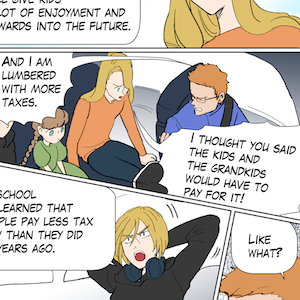Civil society is in jeopardy in the UK as funding cuts erode local government capacity
I keep hearing from friends who live in Britain that I will be shocked when I get there on Thursday of this week after a nearly four year absence. One friend, who has just returned said that the deterioration in the public infrastructure is now fairly evident. Despite my absence, I have been keeping a regular eye on the data and so these anecdotal reports and reflections come as no surprise. It is obvious that the Tory government has sought a depoliticisation strategy by cutting local government spending capacity as a way of diverting blame for the consequences of their austerity push. The problem now is that after 13 or so years of Tory rule, the cuts are eating into the very essence of civil society in Britain. Like all these neoliberal motivated cuts, the cuts to council grants will prove to be myopic. The dystopia they are creating will come back to haunt the whole nation.
